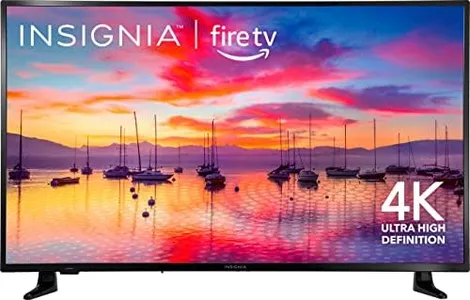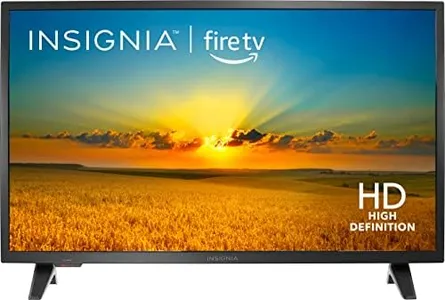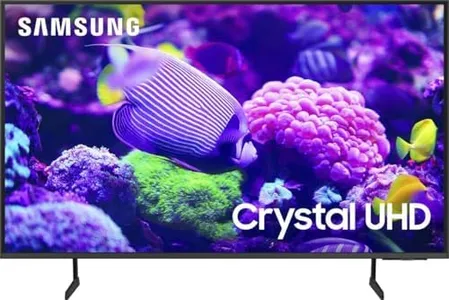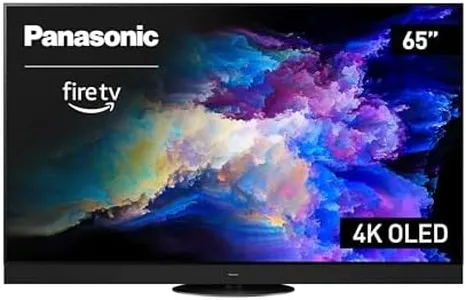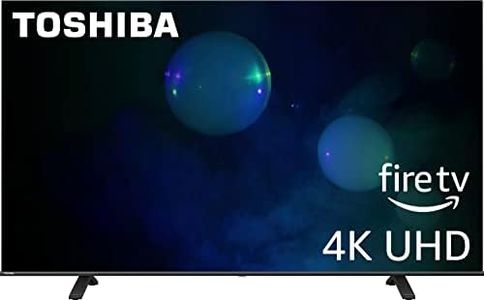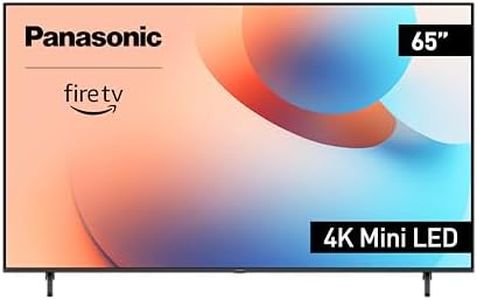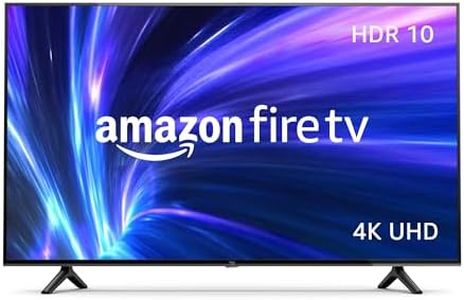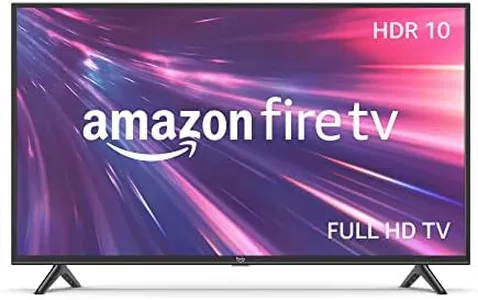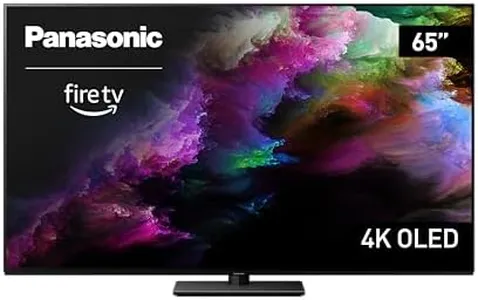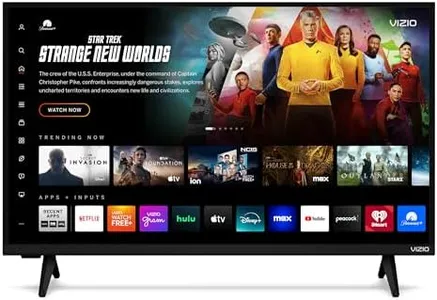10 Best Smart TVs 2025 in the United States
Our technology thoroughly searches through the online shopping world, reviewing hundreds of sites. We then process and analyze this information, updating in real-time to bring you the latest top-rated products. This way, you always get the best and most current options available.

Our Top Picks
Winner
INSIGNIA 50-inch Class F30 Series LED 4K UHD Smart Fire TV with Alexa Voice Remote (NS-50F301NA24)
The Insignia 50-inch Class F30 Series LED 4K UHD Smart Fire TV offers impressive features for its price point. Its 4K Ultra HD resolution ensures stunning picture quality, providing four times the resolution of Full HD, making it ideal for enjoying movies and TV shows with exceptional clarity. The TV's integration with Fire TV and Alexa voice control adds significant convenience, allowing users to search for content, control smart home devices, and perform various tasks simply by speaking into the remote.
Additionally, hands-free control is possible when paired with an Amazon Echo device, further enhancing ease of use. Access to a wide range of streaming services like Netflix, Disney+, and Hulu means you'll have no shortage of content to watch. The 60 Hz refresh rate is decent for casual viewing but might not suffice for fast-paced sports or gaming, where higher refresh rates are preferable.
The audio quality, supported by DTS Studio Sound, aims to deliver immersive sound, but it may not match the depth and richness of more expensive sound systems. Connectivity options include Wi-Fi and Wi-Fi 5 (802.11ac), which should be sufficient for most users' streaming needs. However, the absence of multiple high-speed HDMI ports might be limiting if you have several external devices to connect. For its size, the TV's profile is reasonably compact, making it suitable for medium to large-sized rooms. The Insignia 50-inch F30 Series is a solid choice for users seeking a budget-friendly 4K TV with smart features, though it may not cater as well to avid gamers or audiophiles seeking top-tier specifications.
Customer Highlights
A summary of real customer reviews to highlight what shoppers are saying!INSIGNIA 32-inch Class F20 Series Smart HD 720p Fire TV with Alexa Voice Remote (NS-32F201NA23)
The INSIGNIA 32-inch Class F20 Series Smart HD 720p Fire TV is a budget-friendly smart TV that comes with a 720p resolution, which means it provides high definition picture quality but not the sharpest compared to full HD or 4K TVs. At 32 inches, it's a good size for smaller rooms like bedrooms or kitchens. The built-in Fire TV platform is a significant strength, offering access to over a million streaming movies and TV episodes through apps and channels, making it easy to find and enjoy your favorite content.
It also supports voice control with the Alexa Voice Remote, allowing you to search and control your TV using simple voice commands, which adds a layer of convenience, especially for those who prefer hands-free operations. The TV supports Apple AirPlay, which is great if you have Apple devices, as it allows you to share media effortlessly to your TV. HDMI ARC support is another advantage, as it simplifies audio connections with soundbars and receivers, improving your audio experience without needing extra cables.
However, there are some limitations to consider. The 720p resolution is not as sharp as higher resolutions, and it does not support HDR (High Dynamic Range), so the color and contrast may not be as vivid. The refresh rate is 60 Hz, which is standard but may not be ideal for fast-paced sports or action scenes. It uses Wi-Fi 5 for connectivity, which is adequate but not the latest standard. Audio quality is serviceable but might not be exceptional without external speakers. This TV is best suited for those looking for an affordable, compact smart TV with good smart features and voice control but who do not require top-tier picture quality or advanced features.
Customer Highlights
A summary of real customer reviews to highlight what shoppers are saying!SAMSUNG 65-Inch Class Crystal UHD 4K DU7200 Series HDR Smart TV w/Object Tracking Sound Lite, PurColor, Motion Xcelerator, Mega Contrast, Q-Symphony (UN65DU7200, 2024 Model)
The SAMSUNG 65-Inch Class Crystal UHD 4K DU7200 Series HDR Smart TV stands out with impressive features designed for an enhanced viewing experience. One of its notable strengths is the PurColor technology, which delivers vivid and lifelike colors, allowing viewers to appreciate the nuances of various scenes, from lush landscapes to dynamic action sequences. The 4K Upscaling and Mega Contrast features further enhance picture quality by improving clarity and adjusting brightness, making it suitable for a wide range of content. Additionally, the Motion Xcelerator minimizes lag and blur, which is particularly beneficial for fast-paced shows and sports.
The Object Tracking Sound Lite feature also deserves mention, as it creates a more immersive audio experience by aligning sound with the on-screen action. This, combined with the capability to sync with compatible Samsung soundbars using Q-Symphony, makes for an excellent audio setup for home entertainment enthusiasts.
This smart TV is an excellent choice for families or casual viewers looking for vibrant visuals and good sound.
Customer Highlights
A summary of real customer reviews to highlight what shoppers are saying!Buying Guide for the Best Smart TVs
Choosing the right smart TV can greatly enhance your viewing experience, providing you with access to a wide range of content and features. When selecting a smart TV, it's important to consider several key specifications to ensure you get the best fit for your needs. Understanding these specs will help you make an informed decision and find a TV that meets your preferences and requirements.FAQ
Most Popular Categories Right Now


